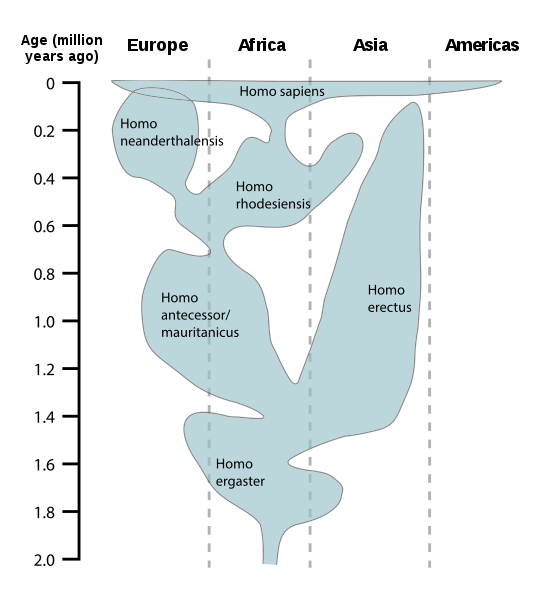I'd like to offer some corrections, here, since it seems you'd adopted incorrect ideas about science, and evolution in particular.
I acknowledge that not everyone will see the proof I see as proof. Essentially, I understand that one will not believe in God, and as a result will not take certain events as proof the way I do.
After all, in my book, that's what Christianity is all about; to believe in what you can't see. Believing that I was created by a purposeful being, and that my molecules didn't happen to form together through some random process, is empowering. I know I'm not an evolved ape that gained high intelligence through some quirk of nature, but was created by an intelligent mind that has a purpose for my existence. You can call it superficial; perhaps a human should create their own purposes and doesn't need to be born into one. I do both. I believe I, like all humans, was born with a purpose; and along the way to fulfilling this purpose, I create and fulfill my own as well.
Believing in something I can't proof to other people( because I can prove it to my own mind, ) will not taint my mind unless I let it.
A few notes:
-Molecules don't assemble "randomly". They assemble as per forces and principles, and these are not random. If they
were random, it would be impossible to study and predict their interactions, since randomness entails a lack of any coherent patterns. There are rules that govern and inform interactions in our universe.
On a related note, that something is non-random does not mean it is designed, or that there is an intent behind interactions. It only means that what order there is results from forces that are governed by rules. You might ask how and why those rules take the form they do, but that's a different question than whether the universe is random or not.
-You are an evolved ape, by definition. The term "ape" is a label that seeks to describe a certain class of animals. If an organism has hands with opposable digits, front-facing eyes, bipedal legs, is a mammal, lacks a tail, and so on, then that thing can be called an "ape". And you are evolved, because evolution via natural selection offers the most accurate account for the diversity of and relation between species. And under that picture, the human species shares a common ancestor with other extant apes (chimps, gorillas, orangutans, and gibbons).
-Might I inquire as to what purpose we were created with? If I were to create something intelligent, I'd likely do so for some kind of end or goal as well. Yet from my limited exposure to Christian theology, it seems God created Man so that we can "glorify" and "praise" God. Which is a bit bizarre. God created us so that we can thank him for creating us? Or we were created to be in the presence of God in Heaven? Then why the roundabout process of incarnating (and dying) in some material realm first?
Being created "for a purpose" is not an incomprehensible notion, of course. Though when the purposes are like the above, it kind of smacks of the absurd. Though if the above is indeed incorrect, I invite you to make the necessary corrections.
Also, the argument against theism is that, why believe in the supernatural explanation over the scientific one, correct? Honestly, evolution, which is presumably the basis for atheist creation theories, is as illogical as that of a supernatural being existing and having the power to shape a universe, to my mind. Simply because this; why have humans stopped physically evolving? We evolved from monkeys; we are not exempt from the cycle. So why is it we haven't physically changed as a race over the many years we existed? Granted, we are always evolving mentally; but no physical changes seem apparent.
I can't give a source, but it seems to me humankind has always had a fascination with flying. Why did we have to wait until our minds evolved to technologically allow us flight? Why weren't the sons and daughters of earlier generations born with tiny wings that grew larger with each new generation?
Here's a basic primer on the theory of evolution, since it seems you've been having a hard time wrapping your mind around it, in the past:
[collapse=ON EVOLUTION]
That's not really the case. On an individual basis (and as you've noted above), one's theism or atheism will emerge out of experience. I, for instance, have had nor have any spiritual or supernatural experiences, so I can't believe in God on an experiential basis. And I've not yet seen any arguments or ideas that warrant that I restructure my life and thoughts around a given deity. I would imagine that this is the case for many atheists.
But beyond the individual, on a philosophical and practical basis, what theism tends to lack is explanatory power. Science is the most useful and solid method we've yet devised to ascertain knowledge about the world we live in -- and we only have access to that world, at least while we are alive. Science has a lot of explanatory power, because it can describe, and predict, the phenomena that make up our experience of the world. The theistic account does seek to account for certain things, but it's either that science has a more robust explanation, or that theism presents unfalsifiable propositions that science cannot answer (due to the unfalsifiability), so we don't have the means to verify or confirm within the bounds of our experience.
This pertains to evolution as well. The diversity and prevalence of life is accounted for in detail by the theory of evolution. It's a pretty simple notion, once you break it down to a simple form. It's basically all about probability. If an organism has adaptations that allow it to better survive in their environment, the likelihood they will survive long enough to procreate increases. And they will transmit their genes to a new generation. Those who have a harder time surviving will have less chances to procreate, so those less successful organisms will phase out of the population.
And in an interplay between environmental changes and shifts, and interactions between different organisms and species, you have generations of speciations, extinctions, migrations, and various other things that lead of the rise and fall of countless species. This process is driven by natural selection -- that is, there is no mind or intentional agent driving any of this, but instead the non-random interactions in the forces of nature on our planet. If natural selection doesn't need an agent with intention to explain how it works, why would science need to posit one?
Humans have not appeared to change much over time because evolution is a very slow process. It's a sort of genetic snowballing that spans thousands upon thousands of generations. It is currently thought that
Homo sapiens first started to diverge from the Heidelberg Man around 400,000 years ago (the Neanderthals also diverged from HM around that time). Humans haven't changed all that dramatically since that time. Life on this planet has been around for about 3 billion years, by modern estimates. The fact that it's taken so much time to produce our diverse "ecosphere" shows just how slowly natural selection occurs.
Humans are classified as apes, and all apes descend from a common ape-like ancestor. Monkeys and apes diverged earlier (I recall something like 2.5 million years ago, but don't quote me on that). If our distance evolutionary predecessors had wings, then these wings were clearly phased out -- because if they weren't, we'd still have them, or at least have vestigial wings. Wings were never necessary for our survival, so we were never pressured as a species to develop means of flight. If we are to develop wings, it won't happen for thousands of generations yet.
[/collapse]
Evolution is not the "basis" of the non-theistic worldview. In fact, atheism isn't a complete description of any worldview. It only notes that the individual (the atheist) does not hold theistic beliefs. It tells us nothing about what that purpose believes politically, culturally, philosophically, etc. Though an atheist will likely accept the findings of science as being provisionally accurate, since science does inform non-theistic outlooks (e.g. naturalism, materialism, secularism, humanism, etc.).
Also, I will note that in science, the
origin of life is a different (though related) subject than the
diversity of life. It's not yet been adequately confirmed how life began on Earth. But we are confident that, no matter how it got started, that once it
did begin, natural selection can sufficiently account for how life developed and evolved over time.
This natural account is not "as illogical" as the supernatural account. And this, because we can at least say that whatever the case -- whether there is a God or not -- the theory of evolution does account for how life unfolds, and the evidence is so broad and vast that we can be confident that it's true.
So that's a basic primer on the theory of evolution and natural selection. It seems you hold to an incorrect view of the subject, or at least have enough questions that these theories don't seem to be credible. Whichever the case, I would recommend you begin exploring the topic further -- both for the sake of self-education, and because the topic is really quite interesting. 8)



